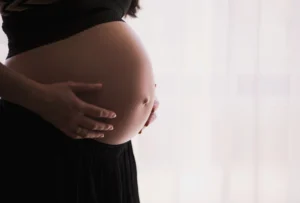The journey to conception through in vitro fertilization (IVF) is often a complex and emotionally charged experience. For many couples, the embryo transfer is a critical step, carrying the hopes of a successful pregnancy. While the expertise of reproductive specialists and the advanced technologies used in IVF are pivotal, integrating acupuncture into the treatment process can significantly enhance the chances of success.
Acupuncture, when applied both before and after embryo transfer, offers profound improvements in implantation rates, reduces the risk of ectopic pregnancy, and supports the overall health of the developing embryo.
The quality of the endometrium—the lining of the uterus—is crucial for successful implantation of the embryo. Acupuncture performed before embryo transfer plays a vital role in optimizing this environment by enhancing blood flow to the uterus.
One of the primary benefits of pre-transfer acupuncture is its ability to increase blood flow to the uterus. This surge in blood circulation effectively “flushes” the uterus, ensuring that the endometrium is richly supplied with oxygen and nutrients. A well-nourished endometrium creates an optimal environment for embryo implantation.
The process of embryo transfer often triggers uterine spasming, which can cause the embryo to move upwards into a fallopian tube causing an ectopic, non-viable pregnancy.
The rate of ectopic pregnancy in IVF patients ranges between 2-9%, significantly higher than the 1-2% rate seen in the general population.
Acupuncture administered post embryo transfer minimizes or stops uterine spasming, thereby decreasing the risk of ectopic pregnancy and increasing the rates of a successful endometrial implantation.
90% of miscarriages occur by or before the 12th week of pregnancy. While many factors can contribute to miscarriage, inadequate blood flow to the developing embryo and, subsequently to the developing fetus is a significant and preventable cause.
During the early stages of pregnancy, before the placenta is fully developed, the yolk sac plays a crucial role in nourishing the embryo. The yolk sac provides the essential nutrients and oxygen needed for the embryo’s growth and development. This structure is attached to the embryo and is supplied by the maternal blood flow. Acupuncture helps ensure adequate blood flow to the yolk sac.
As the pregnancy progresses, the placenta takes over the role of nourishing the fetus. The placenta is responsible for exchanging nutrients, oxygen, and waste between the mother and the developing fetus. For the placenta to function properly, it must receive a steady and adequate blood supply. Acupuncture helps ensure adequate blood flow to the placenta.

Blood carries everything that is vital for the development of the embryo and later the fetus. This includes:
Without sufficient blood flow, the yolk sac and placenta cannot provide these critical substances, leading to developmental issues and increased risk of miscarriage.
For couples undergoing IVF, considering acupuncture as part of their treatment plan could make all the difference in achieving a healthy and successful pregnancy.
A crucial period for women undergoing IVF is the first trimester. This is when most miscarriages occur.
During the early stages of pregnancy, the placenta and fetus, undergoes rapid development. This process requires an abundant and continuous supply of blood to ensure proper growth and function.
Acupuncture has been shown to improve blood flow to the uterus and placenta and the developing fetus, making it a vital therapy during the first 13 weeks of pregnancy.
Reaching the 13th week of pregnancy marks a significant milestone. By this time, the risk of miscarriage drops dramatically, and the pregnancy is generally considered stable. Patients who continue acupuncture treatment through this critical period are more likely to reach this milestone with a healthy pregnancy.
When patients reach 13 weeks, we discharge them with the understanding that they now have a statistically excellent chance of carrying their pregnancy to term. This is a testament to the importance of ongoing care and the role acupuncture plays in supporting a successful pregnancy outcome.
Acupuncture is a powerful tool in reproductive medicine, particularly during the vulnerable first trimester following embryo transfer.
Continued treatment through the first 13 weeks is crucial, as it helps patients reach a critical point where the risk of miscarriage significantly decreases, paving the way for a full-term pregnancy.
www.berkleycenter.com
212-685-0985

Mike Berkley, LAc, FABORM, is a licensed and board-certified acupuncturist and a board-certified herbalist. He is a fertility specialist at The Berkley Center for Reproductive Wellness in the Midtown East neighborhood of Manhattan, New York.
View all posts